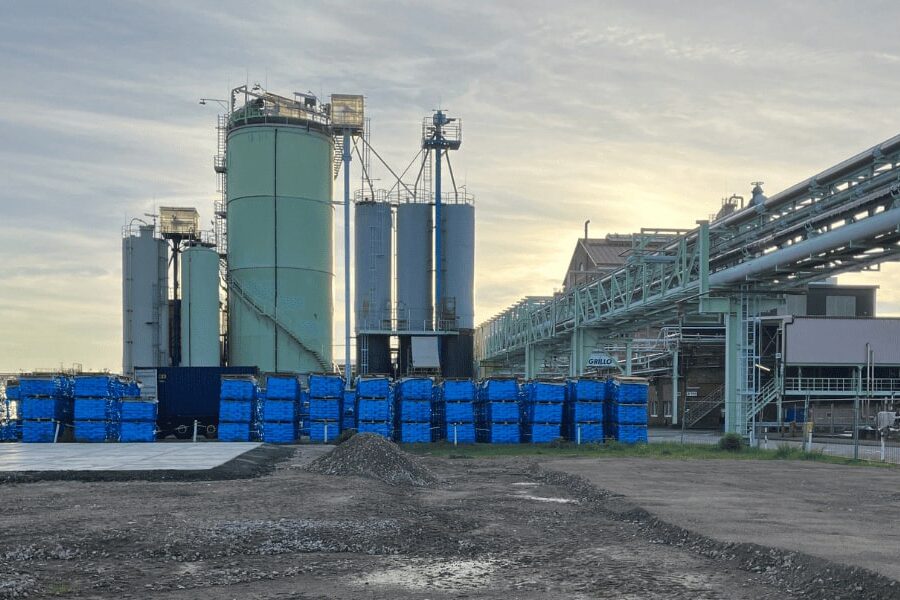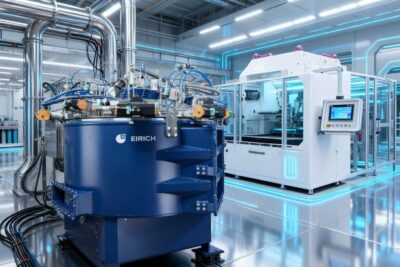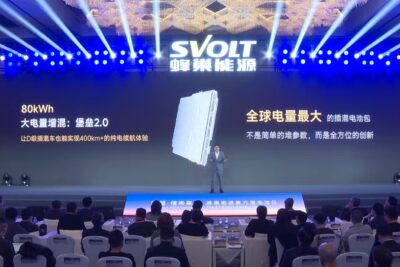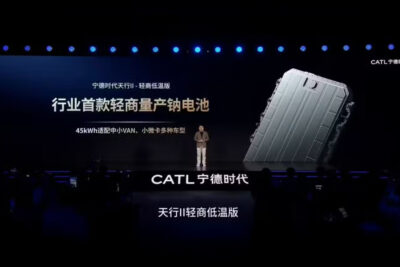Vulcan Energy completes first batch of lithium hydrate in Frankfurt
Vulcan Energy writes that it is the first production instance that meets the purity requirements for the use of the raw material in lithium-ion batteries. The preliminary product, high-purity lithium chloride concentrate, is filtered out of the thermal water of the Upper Rhine Graben in Vulcan’s first lithium extraction optimisation plant (LEOP) in Landau and later processed into lithium hydroxide monohydrate (LHM) at the CLEOP in Frankfurt-Höchst.
According to Vulcan Energy, the entire production process is carried out without the use of fossil fuels and therefore has the lowest CO2 footprint in the world. This should enable both one of the most sustainable and one of the most cost-efficient lithium supply chains in the world. At the same time, the production of lithium hydroxide monohydrate in Germany can strengthen Europe’s independence from raw materials and further advance the green mobility transition.
Cris Moreno, Managing Director and CEO of Vulcan Energy commented: “Congratulations to the entire Vulcan team on the first production of battery grade LHM at our optimisation plant. This is an important milestone for Vulcan and the final step in realising the first fully domestic and integrated supply chain in Europe producing battery-grade LHM from local sources. I am very proud of the entire Vulcan operations team who have managed to produce battery-grade LHM in a very short time since the plant started production in November. This underlines Vulcan’s position as a leading lithium and renewable energy project in Europe.”
The production of Vulcan’s first battery-grade lithium hydroxide monohydrate follows just weeks after the optimisation plant went into operation in November 2024. The lithium product is now being put through its paces by Vulcan’s off-take partners from the European automotive and battery industry, including Stellantis, Renault, LG and Umicore, to qualify for continuous use.
At the same time, Vulcan Energy is pressing ahead with the construction of the facilities for the first phase of the project. In this first phase of the ‘Lionheart’ project, Vulcan is aiming to produce around 24,000 tonnes of lithium hydroxide monohydrate per year, which is roughly enough to meet the battery requirements of around 500,000 electric vehicles. Like the CLEOP plant, the planned commercial production facility is to be built at Industriepark Höchst in Frankfurt and is therefore located in the immediate vicinity of Vulcan’s customers.
The aforementioned LEOP plant in Landau for extracting lithium from geothermal brine is also a small plant on a scale of 1:50 in relation to the planned industrial plant. This is also due to be built soon.
v-er.eu (in German)





0 Comments